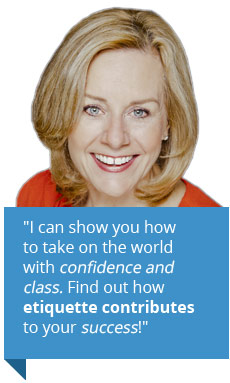Leverage Your Lingo – Exploring the Power of Conscious Communication
February 15, 2012 Socrates taught us, “The unexamined life is not worth living.” Borrowing from his wisdom, I would like to suggest that the unexamined sentence is not worth speaking.
Socrates taught us, “The unexamined life is not worth living.” Borrowing from his wisdom, I would like to suggest that the unexamined sentence is not worth speaking.
The language we use – both inside our heads and out in the world – is magnificently influential. The power that language has in shaping outcomes really cannot be understated.
Yet because we speak so frequently, we tend to let our mouths fly on autopilot, following well-worn patterns of expression. Given the influential power of language, it would be wise to slow down and ask ourselves: “Where do these verbal habits lead us?”
The mind is always listening to us talk, and it takes our words as instructions to build on. Star Wars Jedi Master Yoda spoke to us all when he said, “Do or do not; there is no try.” When we say “I’ll try,” it leads us into the effort-rich experience of trying. Yet when we say, “I will do it,” the mind follows an entirely different pathway – the path to making it happen.
Even a casual comment can generate a feeling, and that feeling grows into an attitude. A dear friend taught me this, in a very humbling moment. We had been talking one night about her enduring troubles in conceiving a child. This was a cherished dream, one she had attempted for so long, and we talked for nearly an hour about her heartache. Glancing at the clock, I realized my daughter was waiting for me to pick her up at school. “Janet,” I said, “I’m so sorry to end our call, but I have to go get Corinne.”
After a moment of silence, she said to me pointedly, “You mean, you GET to go get your daughter.”
(GULP.)
She was absolutely right. Parenting is a marvelous privilege… one that my friend yearned for deeply and might never know. Yet there I was, speaking on autopilot, casually implying that my parenting responsibilities were an inconvenient burden. This moment was a turning point for me, one that inspired a deep commitment to communicate as consciously as possible – to truly embrace the influential power of language.
In the years the followed, I delved into the teachings of Neuro-linguistic Programming (NLP), examining the influence of language on our thoughts and behaviors, from the biological level all the way up through relationships and achievement. It was a path of study that forever changed the way I speak, think, and see the world.
Accentuate the Positive
One of the most valuable insights I gained from NLP was that language directs our focus. Ultimately, our words create the blueprint of our lives. Many people are relatively blind to this cause-and-effect relationship between the comments we utter and the results that follow – and sometimes we sabotage ourselves in the process.
For example, when we want a certain result, we often speak about what we don’t want (“Don’t forget the umbrella!”). The more we talk about what we don’t want, the more we think about what we don’t want – and the more energy we direct into what we don’t want.
It’s far more productive to reframe our words around what we DO want. “Remember the umbrella” has much more influence to create the desired result.
Here’s another common form of verbal sabotage: but. When you use this word to join two thoughts, “but” completely negates the first thought. If you’ve ever heard, “You did a great job, but…” you know what I mean. A simple shift to the word “and” can make all the difference. “You did a great job, and this one extra step would help us even more.”
When we learn to be precise and elegant in our language and communication, we increase our influence – both internally and externally. In the words of Theresa Bradley-Banta, “Elegance is a seduction. It is a grace of style. Of being in a way that attracts rather than repels.”
Empowering language strengthens our mindset, actions and relationships, all of which help us create what we want. In other words, it’s the horse that leads the cart.
This is why positive people have an easier time moving through life. Their language patterns support a positive mindset, which focuses attention on the desired results – unlike negative people, who seem to get lost in a swirling pool of fear and pessimism, and make little progress. Negative people simply have less energy left over to create, connect and move ahead.
This is why it is SO important to speak from a positive orientation. Staying focused in the right direction is a shortcut to feeling better, achieving more, and building stronger relationships.
Here are 10 common examples of disempowering language, paired with simple ways to adjust the language and redirect your energy.
| DISEMPOWERING Language | EMPOWERING Language |
| “I don’t want to mess up!” | “I’m going to succeed.” |
| “I have to brush my teeth.” | “I’m going to brush my teeth.” |
| “I should do my work.” | “I will do my work now.” |
| “I can’t afford to do that.” | “I aspire to do that.” |
| “I hope to go someday.” | “I intend to go next year.” |
| “Maybe tomorrow.” | “Today.” |
| “This is a problem.” | “This is an opportunity.” |
| “I am going to lose weight.” (We like to find the things we lose!) | “I love to exercise.” or “I eat small portions of lean, nutritious foods.” |
| “I wish I did that.” | “I will do that next time.” |
| “Thank you for the compliment, but…” | “Thank you for the compliment, and…” |
Questions to Consider:
1. From this list of examples, which bolded phrases are you most likely to say? Select three.
2. Take a moment to review a recent experience when you spoke a disempowering comment. Explore the thoughts, feelings, actions and results that followed. Did your comment lift and focus you, or leave you feeling defeated and unable?
3. Are you willing to experiment with the power of positive communication? If yes, I applaud you! And I encourage you to share your experiences with me. (I almost said I hope you will share your experience… but I caught myself! Encouraging is much more empowered than hoping. )
 Print This Post
Print This Post
Leave a Reply




No Comments Yet
You can be the first to comment!